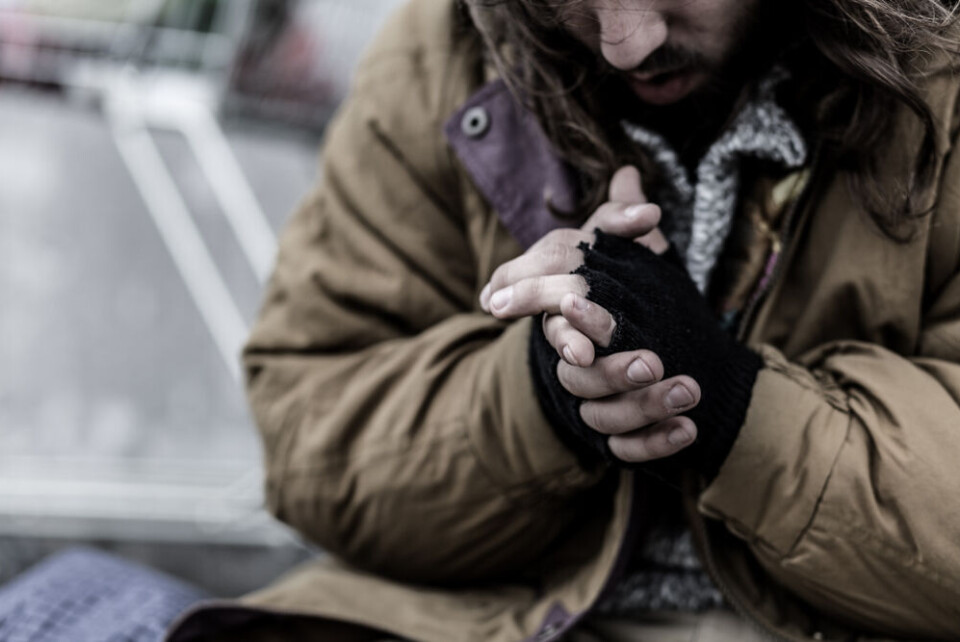-
Pistes closed, confinement orders: Alpine resorts deal with avalanche risk
Increased snowfall this weekend may cause further closures as busy school holiday season continues
-
Former French Interior Minister announces 2027 presidential candidacy
Bruno Retailleau recently asked prefectures to be tough on immigration
-
Ryanair axes Dublin-Rodez route but London connection retained
“We are disappointed but had no say in decision” say airport authorities
France set for below-normal cold spell: How is government preparing?
The ‘plan grand froid’ is a series of measures introduced when temperatures plummet and remain low for some time

France is set to shiver in below-normal temperatures this weekend, meaning that the government is expected to launch its ‘plan grand froid’ - an official protocol of measures to protect at-risk people.
From today (Friday, January 5), temperatures are set to drop by 6-7C across the entire country, as a result of the ‘Moscow-Paris’ cold air stream. The cold will continue and intensify over the course of next week.
As a result, the government is expected to launch the plan next week. Officials are currently holding preparatory meetings, and decisions are set to be taken quickly as the mercury drops, reports BFMTV.
Various departments in areas more exposed to the cold have already activated the plan grand froid including:
- Ariège, where it started on November 1
- Bas-Rhin, where it started on December 1
- Aude, where it started on December 1
- Isère, where it started on November 1
❄️#GrandFroid
— Préfet de la Vienne (@Prefet86) November 13, 2023
🤝Plan hivernal 2023-2024 : l’État renforce son dispositif de protection des personnes sans-abris
📅activé du 1er novembre au 31 mars
3⃣ piliers financés et coordonnés par l’État ⤵️
📞le n° d'urgence 1⃣1⃣5⃣
👉un dispositif de maraudes renforcé, composé de… pic.twitter.com/3y3oVItUmX
These departments state that they will provide emergency accommodation to homeless people who request it until the end of winter.
Other areas are scrambling their resources to deal with the coming cold snap, including:
- St Nazaire, where volunteers from the Protection Civile are preparing to encourage homeless people to sleep in a municipal gymnasium on January 6
- Haut-Rhin, where the Red Cross is preparing emergency accommodation, including hotel rooms, for homeless people starting on January 6
What is the ‘plan grand froid’?
It is a set of measures that the government can activate when alerted by weather service Météo France to colder-than-normal weather over a prolonged period.
It is made up of four ‘chains of alert’, classified by colour: green, yellow, orange, and red, depending on the seriousness of the situation.
The measures include:
- Allowing local authorities to temporarily open additional accommodation places for homeless people, including normally non-residential sites, such as gymnasiums, schools and community halls
- A local census of isolated people living on their own
- Adapted hospital wards and beds for vulnerable people
- More outreach work to vulnerable people
- Extra efforts to limit the development of epidemics of illnesses such as flu syndromes and bronchiolitis
- More awareness raising and work to prevent the risk of carbon monoxide poisoning
The plan also provides for more communication and regular updates on the help available and recommended precautionary measures, especially in case of a health alert (for example, on the Santé publique France website and via radio and TV advertisements).
The health ministry has the final say over when and how to put the extra measures in place, but other government departments can also help with the situation. For example, the ministry of the energy transition typically increases its communication about ways for people to save on energy bills despite the cold. Currently, the risk of a power shortage in France is low, even if demands increase sharply.
The transport ministry may also get involved by checking that public transport - especially trains - are safe to travel in the inclement conditions. The Agriculture Ministry will also communicate with and assist farmers and producers whose crops may be affected by the cold and ice.
In case of an even more severe cold snap, extra measures may be implemented, including advising farmers to cover up more of their crops, and bring all livestock inside.
























